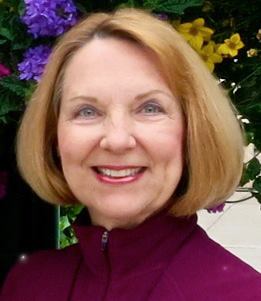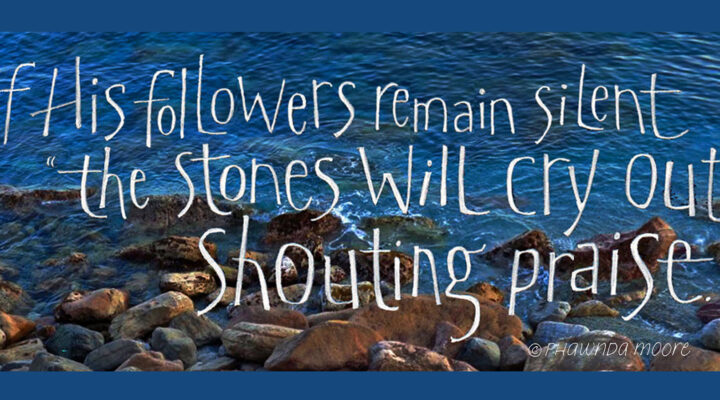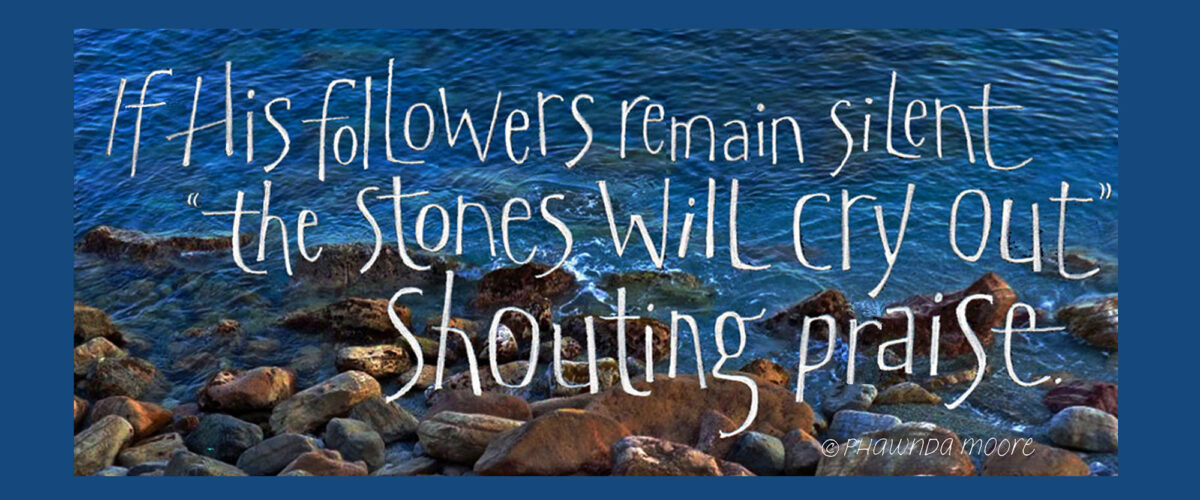It’s a common dilemma nearly every day: You’re having a conversation and you suddenly pause, take a deep breath and count to 10, thinking, “Should I say anything?”
While the question floats in space like a cloud, you know your words can bring either sunshine or a tornado. You’re not alone.
We struggle because for generations, parents said it was better, in polite society, to be silent about three things: politics, sex and religion. Many in church were raised to keep the peace and be a silent, “good person.” In today’s world, that doesn’t prepare us to balance saying something while being true to our God and ourselves.

Phawnda Moore
It is divine wisdom that makes us mature, as we read in Ephesians 4:14-15. “Then we will no longer be infants, tossed back and forth by the waves, and blown here and there by every wind of teaching and by the cunning and craftiness of people in their deceitful scheming. Instead, speaking the truth in love, we will grow to become in every respect the mature body of him who is the head, that is, Christ.”
The banner, above, references Jesus’ words in Luke 19:37-40 as encouragement to his followers’ shouting praise.
Isaiah 1:17 tells us: “Learn to do good; seek justice, correct oppression; bring justice to the fatherless, plead the widow’s cause.” The verbs “learn,” “seek,” “correct,” “bring” and “plead’ all involve being willing to speak out.
How do we do that, in love?
After seeing the damage of being silent for generations, there’s living proof that silence does not result in peace. Repressing the effects of inequities — of race, the role of women and their bodies, immigrants, education and books, justice, war, global warming and more — now has unleashed buried tears and loud, angry voices.
They become modern storytellers, writing about painful experiences and lost years in books. Some compose songs, make movies and art. The humanities yearn to connect, somehow, with their tribe. Just listen.
When society responds to a voice, meaningful change is possible. A voice of light is a powerful megaphone. Folks wonder how to know a voice of light. When you find yourself listening, consider the points:
- What is the message? Be objective, connect the dots.
- Research what you’ve heard for accuracy. Always.
- Check the spirit of the speaker or crowd. Is it valid, righteous anger or carefully manipulated, hateful behavior? Is it respectful to all; does it invite accountability. Is it oppressive and cruel?
- Is the message pleasing to God? Does it encourage you to put your faith into action?
- Ask what your gifts are. How can you be a person of light?
- The answer to No. 5 might lead to action in marching, writing, supporting organized groups, leading a study group with a good book to invite discussion.
Standing above noisy crowds, voices of light acknowledge what is true without blame or revenge. They embrace inclusivity and extend a message of hope. Their source is in their spirit. It is the spirit.
At President Biden’s 2021 inauguration, a 22-year-old, petite Black woman, dressed in an illuminating yellow jacket, confidently read The Hill We Climb.
 Amanda Gorman said she was not given specific instructions on what to write but was encouraged to emphasize unity and hope over “denigrating anyone.”
Amanda Gorman said she was not given specific instructions on what to write but was encouraged to emphasize unity and hope over “denigrating anyone.”
It so happened that Gorman was actually writing The Hill We Climb as the events of Jan. 6 at the U.S. Capitol unfolded, so she acknowledged that in her poem.
The poet laureate electrified the crowd when she said, “We’ve learned that quiet isn’t always peace, and the norms and notions of what ‘just’ is isn’t always justice.”
Her source was clear when Gorman, a Catholic, read, “Scripture tells us to envision that everyone shall sit under their own vine and fig tree, and no one shall make them afraid.”
She recited her words in front of distinguished members of Congress and their guests, and she received a standing ovation.
These links capture her light and inspiration: From The Tablet. From Biography. From YouTube.
The conclusion of The Hill We Climb is printed here:
But one thing is certain.
If we merge mercy with might, and might with right, then love becomes our legacy and change our children’s birthright.
So let us leave behind a country better than the one we were left.
Every breath from my bronze-pounded chest, we will raise this wounded world into a wondrous one.
We will rise from the golden hills of the West.
We will rise from the windswept Northeast where our forefathers first realized revolution.
We will rise from the lake-rimmed cities of the Midwestern states.
We will rise from the sun-baked South.
We will rebuild, reconcile, and recover.
And every known nook of our nation and every corner called our country, our people diverse and beautiful, will emerge battered and beautiful. When day comes, we step out of the shade of flame and unafraid.
The new dawn balloons as we free it.
For there is always light, if only we’re brave enough to see it.
If only we’re brave enough to be it.
Gorman credits her single mother, an English teacher, with the best advice she’s been given: “To thine own self be true.” She seeks to write poetry to help us ask questions that then help us to get to the right destination.
In an interview, the activist was asked for traits essential to success. Gorman responded with “courage” and added that “bravery is also necessary, so that we’re brave enough to be kind, to speak out for others and speak intelligence to power.”
She admits to overcoming her fears, “to use my voice even though I was terrified to do so.”
Penguin Random House reports that Gorman’s book, The Hill We Climb, has debuted at No. 1 on the New York Times adult fiction, USA Today, and Indie hardcover fiction bestsellers lists, with the highest week-one sales of any poetry book ever published.
“There is always light, if only we’re brave enough to see it.”
Phawnda Moore is a Northern California artist and award-winning author of Lettering from A to Z: 12 Styles & Awesome Projects for a Creative Life. In living a creative life, she shares spiritual insights from traveling, gardening and cooking. Find her on Facebook at Calligraphy & Design by Phawnda and on Instagram at phawnda.moore.
Related articles:
The poet who saved John Muir’s home | Opinion by Phawnda Moore
A reflection on Amanda Gorman’s inaugural poem | Opinion by Richard Hester
The recovery of prayer at the turn of the age | Opinion by Stephen Shoemaker


